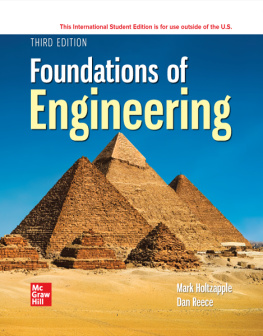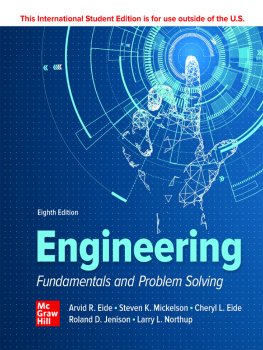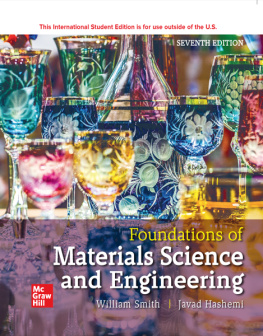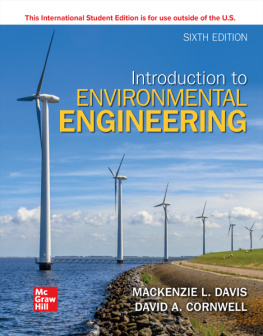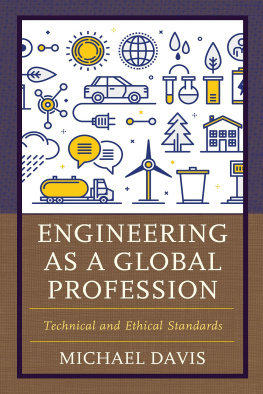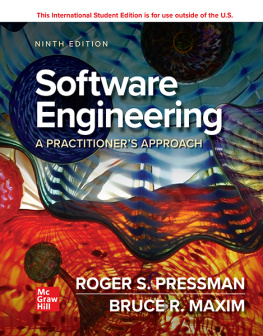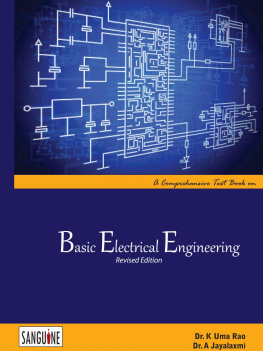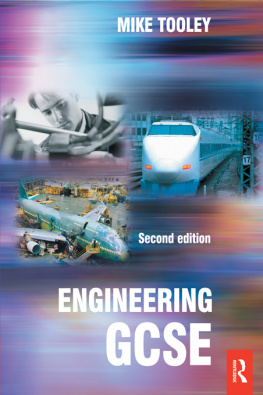
page i
Foundations of
ENGINEERING
page ii
page iii
Foundations of
ENGINEERING
THIRD EDITION
Mark T. Holtzapple
W. Dan Reece
Texas A&M University

page iv

FOUNDATIONS OF ENGINEERING
Published by McGraw Hill LLC, 1325 Avenue of the Americas, New York, NY 10019. Copyright 2023 by McGraw Hill LLC. All rights reserved. Printed in the United States of America. No part of this publication may be reproduced or distributed in any form or by any means, or stored in a database or retrieval system, without the prior written consent of McGraw Hill LLC, including, but not limited to, in any network or other electronic storage or transmission, or broadcast for distance learning.
Some ancillaries, including electronic and print components, may not be available to customers outside the United States.
This book is printed on acid-free paper.
1 2 3 4 5 6 7 8 9 LCR 27 26 25 24 23 22
ISBN978-1-260-57589-7
MHID1-260-57589-6
Cover Image: WitR/iStock/Getty Images
All credits appearing on page or at the end of the book are considered to be an extension of the copyright page.
The Internet addresses listed in the text were accurate at the time of publication. The inclusion of a website does not indicate an endorsement by the authors or McGraw Hill LLC, and McGraw Hill LLC does not guarantee the accuracy of the information presented at these sites.
mheducation.com/highered
page v
CONTENTS
page vi
page vii
page viii
page ix
page x
page xi
page xii
Glossary 696
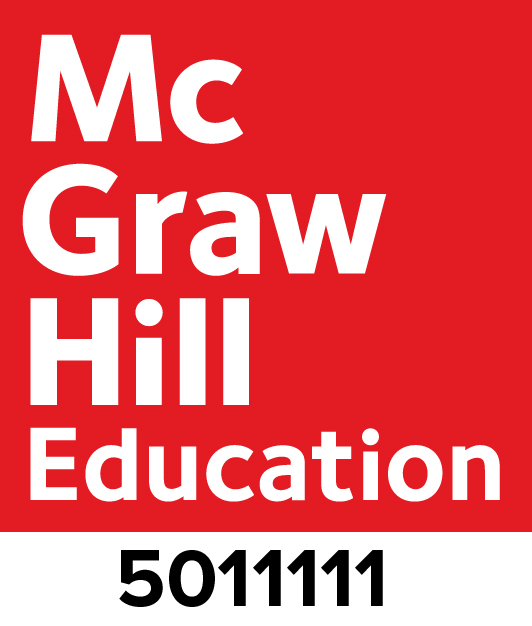
page xiii
TO THE PROFESSOR
Traditional engineering coursessuch as courses on heat transfer, circuits, and fluidsare fairly well defined. In contrast, there is no general agreement on the content of freshman engineering courses. Current freshman engineering texts choose from a range of topics including professionalism, creativity, ethics, design, technical writing, graphing, systems of units, engineering science, and problem solving. All of these topics are important aspects of the freshman engineering experience, but we found no one text that adequately encompassed them all. Therefore, we decided to write our own text to fill the void.
Many freshman engineering texts describe specific engineering disciplines, such as mechanical or electrical engineering, and give sample problems involving statics or electrical circuits. Given the increasing number of new engineering disciplines (e.g., biochemical engineering) and the increasingly interdisciplinary nature of engineering (e.g., mechatronics), we feel this discipline-specific approach is inadequate. Instead, we feel a more unified approach is required, with less emphasis on traditional disciplines. The goals of our text are listed here:
page xiv
Excite the student about engineering. Most practicing engineers find their work to be very exciting and creative. However, freshmen must struggle with the rigors of their science and mathematics classes, so they may be unaware of the pleasures that await them. We hope to stimulate the students interest in engineering by describing engineering history, challenging them with brain teaser problems, and explaining the creative process.
Provide a strong foundation in engineering fundamentals. Engineering has grown beyond the traditional disciplines (e.g., civil, mechanical, and electrical engineering) and now includes nontraditional disciplines (e.g., biomedical, environmental, and nuclear engineering). The common threads through all these disciplines are fundamental physical and mathematical laws.
Cultivate problem-solving skills. The most important engineering skill is the ability to solve problems. We describe many heuristic approaches to creative problem solving as well as a systematic approach to solving well-defined engineering problems.
Challenge advanced students. Students who have good high school backgrounds will have been exposed to calculus and physics. To stimulate their interest in engineering, advanced topics are sprinkled throughout the book.
Integrate computing with other engineering topics. This book contains numerous sample computer programs illustrating a variety of engineering applications. This will help the student realize that computing is not a separate topic, but is a tool used by engineers to solve problems.
Provide reference material. Most students will not purchase handbooks until later in their engineering careers. This book provides unit conversion factors and material properties so that students have the resources to solve real-world problems.
Provide information the student is unlikely to encounter elsewhere. Often, important engineering information that does not fit neatly into advanced courses is put into a freshman engineering course. Thus, this text includes information such as statistics, grammatical rules for the SI system, and graphing rules.
Connect with their high school experience. Many students may be concerned about possible gaps between their actual knowledge and the knowledge college professors expect of them. Touching upon topics with which they are already familiar will ease their anxiety and improve their confidence.
Review high school mathematics. Most freshman engineering students no longer have their high school mathematics textbooks, nor is high school mathematics discussed in college calculus textbooks. For students who need to refresh their mathematics skills, the books website, http://www.mhhe.com/holtzapple, offers a mathematics supplement complete with practice problems.
Connect with their freshman science and mathematics courses. Some students may perceive that their freshman science and mathematics classes are a hazing process, and may not understand that these courses form the backbone of engineering. We purposely incorporate topics they see in other courses to show the connection with engineering.
Provide soak time for difficult topics. Learning is a process that requires repetition. A few difficult topics that students will encounter in later engineering courses (e.g., thermodynamics, rate processes) are introduced here at a very simple level. This allows them to become acquainted with the ideas, so their next detailed exposure is easier.
Introduce the design process. To help freshmen experience the joy of engineering, we think it is necessary to assign a design problem during their first semester. To support this notion, early in the text, we introduce design.
Emphasize the importance of communication skills. Too often, engineers are criticized for lacking communication skills. To help overcome this problem, we provide information on both oral and written communication that will be immediately useful to freshmen during their design project.
The topics in Foundations of Engineering are presented in a sequential manner, so it can be read from front cover to back cover with each new topic building on previously presented topics. Although the book is designed so that it can be read from cover to cover, this does not imply that it must be read from cover to cover. The accompanying figure indicates how the chapters fit together.
The road map in the accompanying figure shows that , respectively.
Next page
